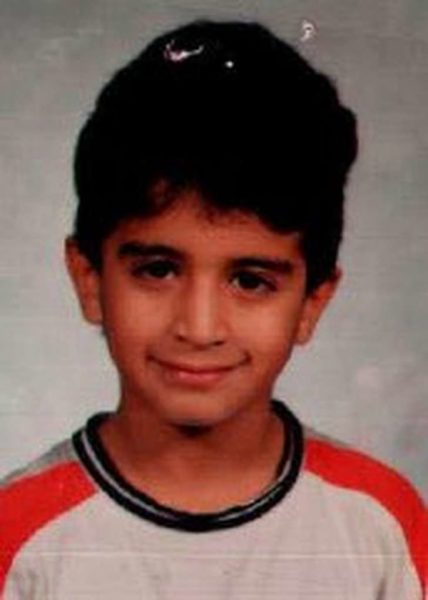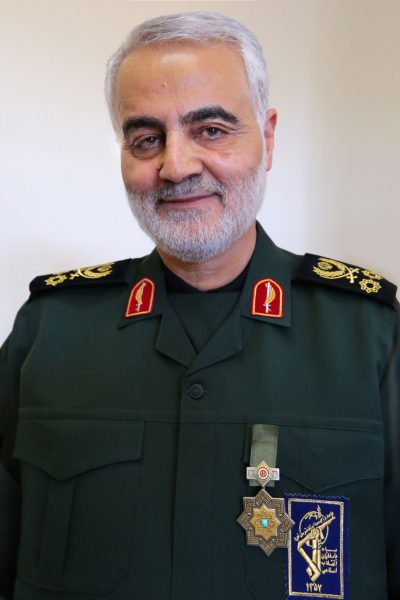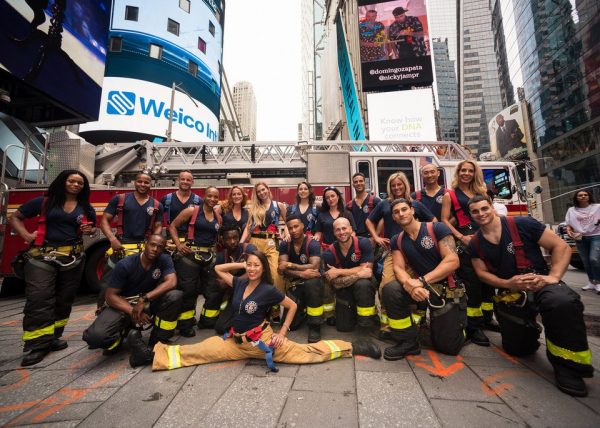As you know, a monster of a hurricane is heading for the poor country of Haiti as well as parts of The Bahamas and Cuba. The people in Haiti live in dwellings ill equipped to handle the 145 mph winds and 40 inches of water. The last time Haiti was hit by a similar storm, almost a thousand lost their lives. Please send prayers and healing energy their way.
And now enjoy the second part of our interview with the Orlando shooter, Omar Mateen.
Me: Okay. What do you think about the LGBT community now, now that you’ve crossed over? You hated them before. What about now?
Omar: I hated them because their ability to love themselves or at least my perception that they could love themselves so much—I could not stand the fact that they could do that.
Me: Because you couldn’t.
Omar: I couldn’t do it.
Robert: I think that’s what he was trying to say a while ago.
Omar: I saw them, and they all seemed to be having a good time.
Me: Yeah, and there’s so much love.
Omar: And when you don’t feel that way, but you see other people doing that, and you can’t even connect to that, you develop this feeling of jealousy and frustration and you want to just snuff that out.
He never did say how he feels about the LGBT community now.
Me: Did you feel any remorse?
Omar: When I crossed over, I felt remorse, but several of the victims helped me through that.
Robert: It makes me want to cry.
Me: Aw.
Omar: They all came to me to help me through what I did. They were concerned for me and not themselves!
Me: Wow.
I think that would make me feel like a piece of shit, honestly.
Omar: When the shooting was going on, of course I was involved in that, but I got to see what people were doing while I was killing them all. They were worried about other people. They were trying to save their boyfriends or their girlfriends, and they were not concerned with themselves.
Me: Aw.
Robert chuckles nervously. I think he’s trying not to cry.
Me: That must have been a powerful moment.
Robert: I can see the images. It’s very impactful to me.
Me: Was it a spiritual contract?
Robert: He shows me this woman that’s with him. She’s an older woman like 48 or 49.
Me: Older woman! I’m going to punch you in the pie hole.
That’s whippersnapper age to me.
Robert (laughing): I mean older than him.
Me (sighing): Okay, fine. Go ahead. Your life is spared.
Robert (laughing and blushing): Shit!
Me: You’re in deep doggie doo-doo.
Robert: Anyway, she’s older than him. I have to make sure I word that right. He name starts with a B, like b-r, Bree, or we’ll just call her Brenda.
Omar: She acted like a mother to me when I came over here.
Robert: He’s showing me this visual of her grabbing him and hugging him, and she says, “It’s going to be okay.”
Me: Wow.
Omar: They were all comforting me, these people who crossed over.
Robert: I know it’s no surprise as a medium, but as a human being, I just know that a lot of people are going to be shocked to know that they were all their trying to support HIM because they felt like to have done what he did was so traumatizing to a soul that they knew he needed the comfort.
Me: Well was it a spiritual contract?
Omar: Yes, it was.
Me: And what was the purpose of the contract? You’re saying the victims and you, Omar, got together before incarnating and said, “Hey, let’s play this whole horrible thing out because we want to achieve–? What?
Omar: For the gay community, it was to create a sense of solidarity with each other, to increase the solidarity.
Me: Okay.
Omar: For the rest of society, it was about recognizing and supporting a group that historically had not always been supported in that way.
Me: Yeah.
Omar: But in the grand scheme of things, it was to bring people together, and exercise in expressing empathy, in acknowledging our potential for love, to recognize that we’re all the same.
Me: Okay.
Erik: Any time we have really big tragedies like this, it’s an exercise of our ability to be compassionate, to show empathy and love, to bring us all together and recognize that we’re all a single collective of humanity. It’s also to call attention to the things in our society that are dysfunctional. If a person is so violent that they go and harm a lot of people like that, that’s a symptom of something that’s off in our society. Someone is not being supported in some way, and when they don’t feel like they’re being heard or supported, this kind of thing can happen.
Me: Okay. Did you get any help from a terrorist organization?
Omar: No.
Me: Well why did you act like you were doing it for ISIS or Al Qaeda or what have you?
Omar: I wanted people to be afraid.
Me: Oh, okay. What about your wife? Was she involved in any way?
Omar (emphatically): She was NOT involved.
Me: Oh, okay, but she knew you had plans to do this, right? So she says.
Omar: She heard me talking, but when a person talks about something, you don’t always know they’re going to do it.
Me: All right. Did she try to talk you out of it? I mean, what did she say when you were talking about doing something like this?
Robert: He shows me this sheepish kind of a thing, like she felt like she had to walk on eggshells.
Me: Okay. Did you abuse her? Was she afraid of you?
Omar: I didn’t abuse her, but –
Me: Because you abused your first wife so I just want to make sure!
Omar: My human side feels like I didn’t abuse her, but she was afraid of me.
Me: Why? If you didn’t abuse her, why would she be afraid of her?
Omar: Because I was imposing. I had an imposing kind of personality.
Me: Okay. Did you ever hurt her? You never struck her?
Robert: He was just showing me what he did. Sometimes he would get into her face like when you’re intimidating someone.
Me: Oh yeah.
I think that qualifies as a form of abuse, so…
Omar: I did that with a lot of people. Well, not a lot, but—
Me: Some people.
Omar: Yeah.
Me: So what did she tell you when you talked about planning the shooting?
Omar: It’s none of your business. I do what I want to do.
Me: You’re telling your wife this or are you saying it’s none of my business?
Omar: No, this is what I told my wife.
Me: No, I want to know what your wife told you. Did she say, “Please don’t do this.”
Omar: She didn’t directly talk to me about it. She would give me a look or say something like—
He didn’t finish his sentence.
Omar: Yeah, it was never like, “Let’s sit down and talk about why you shouldn’t go and mow down 49 people.”
Me: Maybe she was in denial. Maybe she didn’t believe that he could do that and it was all talk but no action.
Robert: That’s what he mentioned earlier: When some people talk about things, it doesn’t always click that they would really go and do it.
Me: Maybe she thought is it was just one of his anger rants.
Omar: When people are in some families, they often keep things to themselves. There’s a lot of dysfunction that goes on in families that people know about, but don’t talk about. They might use gazes, use gestures or body language that says, “I don’t agree with that.”

An Innocent Third Grader
Here’s a wonderful review for Erik’s book, My Life After Death!
This book is THE book about the transition to the afterlife and the afterlife itself. It’s a must read. It’s a work of art!
–Nancy Antia



